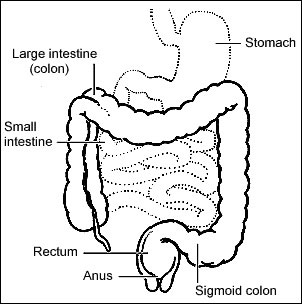What is Ulcerative Colitis?
Ulcerative colitis – also referred to as colitis or proctitis – is a disease that affects the large intestine, resulting in inflammation and sores. Most patients experience these conditions in the rectum and lower portion of the colon, although it can affect any part of the large intestine. Inflammation in the colon causes diarrhea and, over time, kills the cells lining the colon. In spots where the lining has been compromised, ulcers form and produce pus.
Ulcerative colitis is one of many conditions under the banner of inflammatory bowel diseases (IBD). It is sometimes confused with similar conditions like Crohn’s disease. There are two main differences between the conditions: ulcerative colitis causes a deeper inflammation in the intestinal wall and typically affects the large intestine, although it may be present in other parts of the GI tract.
If you are currently experiencing digestive issues, contact us to make an appointment with Dr. Tabib today. He can diagnose and treat all conditions of the GI tract, including ulcerative colitis.


